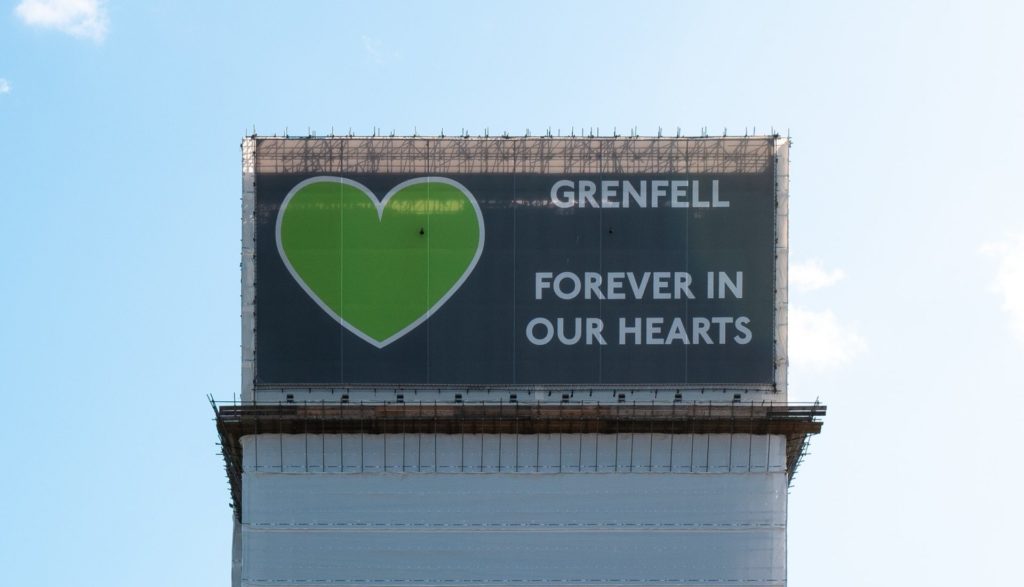Vanessa Igoe
Less than a mile away from Grenfell Tower, a fire broke out on the 12th floor of Stebbing House in Shepherd’s Bush, West London. One resident was taken to the hospital suffering from smoke inhalation and two more people were assessed by the London Ambulance Service at the scene.
The fire is believed to have been caused by a charging electric bike. Allegedly, a resident pulled the plug on the charger and poured water over the bike when it caught fire.
The London Fire Brigade rushed 60 firefighters and eight fire engines to the scene and the fire was under control by 10:55 am.
Fire risk assessment documents published last year for Stebbing House classified the building as a ‘moderate’ risk with multiple concerns highlighted. This included the need for ‘additional smoke ventilation to corridors and the upgrading of one of the lifts to a fire-fighting lift’.
Residents of neighbouring blocks had to be evacuated from their flats. Some of them were witnesses to the Grenfell fire five years prior to the incident. One woman vomited after the fire in Sheperd’s Bush due to the event triggering memories of Grenfell.
Shirvin Best, a former member of the tenants’ association, said: “It has triggered some of our tenants. There’s a woman in our block who had a flashback. She was shopping and someone called her to say the block is on fire like Grenfell. And she ran back panicking. When she came back she saw it wasn’t her block but she was still panicking because it could have been.”
Grenfell five years on
The news of the tower block fire in Sheperd’s Bush comes one week after the fifth anniversary of the Grenfell Fire. The crucial difference is the lack of flammable cladding and additional fire safety measures in Stebbing House.
The bereaved families and friends of the 72 Grenfell victims still await prosecutions and the public inquiry has seen £149million spent since August 2017. Phase one of the inquiry began in May 2018 and revealed the aluminium composite material (ACM) Rainscreen panels acted as the principal reason for why the flames spread so rapidly.
Eighteen months after the Grenfell Fire, the Government responded by banning aluminium composite material (ACM) cladding and aiming to remove the remaining flammable cladding materials on buildings by June 2020. The latest government figures paint a less optimistic picture as there are currently 486 buildings over 18 metres tall that still have flammable cladding. Of those, work is still to be completed on 111 of them while 31 buildings have not had any work started at all.
These figures follow a similar warning by the head of the London Fire Brigade who highlighted extreme concern over more than 1,000 residential buildings in London that are serious fire safety failings almost five years after Grenfell. Commissioner Andy Roe said: “We still need to see a culture change in the industry when it comes to fire safety in residential buildings.”
Phase two of the inquiry took place in January 2020 and examined the causes of the events. This includes how the Grenfell Tower was permitted to be in a condition which allowed the fire to spread so rapidly. This exposed negligence and malpractice within the fire service, Kensington and Chelsea council, construction industry and the government at a national level.
Government Inaction
Boris Johnson vowed to implement all recommendations from the Grenfell Tower Inquiry. Since then, the Home Office in May revealed it would not introduce personal emergency evacuation plans (PEEPs) recommended by the Inquiry. The government claimed that disabled residents should either follow ‘stay put’ advice or rely on rescue by firefighters.
Disabled residents disproportionately made up those that perished in the Grenfell Tower fire. The Home office has since been threatened with legal action by two disabled residents of buildings with fire safety risks, for ditching the proposals for evacuation measures.
The Mayor of London, Sadiq Khan commented at the fifth anniversary of Grenfell at Westminster Abbey, “The response from the Government, building developers and owners has been woefully inadequate and fallen well short of what the families and survivors had a right to expect.” He continued that major reforms to fix these systemic issues “are long overdue and it is disgraceful that the Government has so far failed to complete a single recommendation directed at them from the first phase of the Grenfell Tower Inquiry – leaving too many Londoners at risk in high-rise buildings.”
Featured image courtesy of theblowup via Unsplash. Image license found here. No changes were made to this image.

